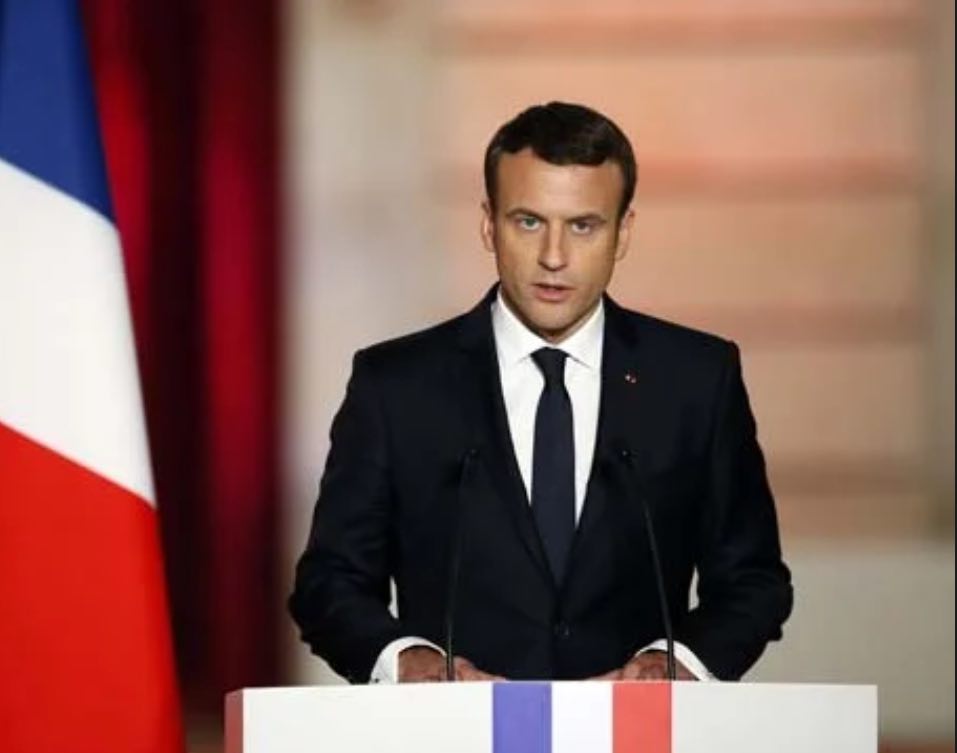What does Paris think about the Middle East
On January 28, France hosted talks with officials from the US, Qatar, Egypt, and Israel, aiming to reach an agreement on establishing a long-term ceasefire in the Gaza Strip and freeing prisoners.
This event can be seen as a good example of France’s role and position in the Gaza crisis, acting as a bridge between Western and regional players, despite having limited influence on the ground. However, the fundamental question is whether France can create a diplomatic foothold in the region amidst the ongoing Gaza war and other current crises.
Paris’s contradictory positions on the Gaza war
The approach of this European country has been criticized since the early days of the Gaza war. On one hand, some observers have expressed regret over France’s stance, considering it ultimately favorable to Israel. On the other hand, some accuse Paris of failing to maintain unity and solidarity with the West. Meanwhile, France claims to seek a balanced approach based on three pillars: security, humanitarian, and political.
France’s solidarity with Israel is not a new topic and dates back to the presidency of Jacques Chirac. Although France had close ties with the Arab world for decades, in the early 2000s, Chirac sought to maintain relations with Arab countries while also establishing warm and friendly relations with Israel, a policy continued by his successor, President Nicolas Sarkozy.
France’s open support for Israel after the Al-Aqsa Storm operation on October 7 was also a confirmation of this strategic orientation. Paris, in continuation of its support for Israel, along with the European Union, Italy, and Germany, advanced an initiative to impose sanctions against the Palestinian Islamic Resistance Movement, Hamas, and its leaders.
Yet, simultaneously, France was the first major Western country to call for a ceasefire in Gaza. Despite the US vetoing two UN Security Council resolutions proposed by Brazil and the UAE for a ceasefire in Gaza, France voted in favor of these resolutions. Additionally, France, unlike some European countries, voted in favor of resolutions proposed by Jordan and Egypt in the UN General Assembly.
Throughout this period, French officials have consistently emphasized that the establishment of an independent Palestinian state is essential for any political solution for the post-war scenario in Gaza. They have also condemned statements by some Israeli cabinet ministers regarding the forced displacement of Palestinians, the creation of settler cities in Gaza, and the construction of 1,800 housing units in East Jerusalem.
Focusing on maintaining regional partners and communication channels amid the war
France has always tried to support initiatives involving regional players and partners to ensure the effectiveness and legitimacy of its policies in the Middle East while avoiding reinforcing the Western narrative against the rest of the world. For instance, regarding Lebanon’s internal crises, France worked closely with countries like Egypt, Qatar, and Saudi Arabia, and after the devastating Beirut port explosion in 2020, Paris and Riyadh began bilateral cooperation to establish a joint humanitarian mechanism.
In the Gaza war issue, although France immediately joined its Western allies after the October 7 attacks, leading to several statements, it did not take long for the French government to return to its preferred model of engagement with regional countries.
In this regard, French President Emmanuel Macron met with Arab League foreign ministers and a delegation from the Organization of Islamic Cooperation on November 22. During this period, some of the country’s ministers have made multiple trips to the Middle East, and the French president has also held telephone conversations with regional leaders, including Iranian President Ebrahim Raisi.
Humanitarian aid is another focus of joint cooperation between France and regional countries. For example, France, in collaboration with Qatar and Jordan, has undertaken actions to treat Palestinian civilians, transfer the injured to Doha, and send humanitarian aid to the Gaza Strip.
France and the options available for playing an active role in the region
Additionally, France’s stance on forming a coalition led by the US in the Red Sea somewhat indicates that the country is not keen on getting caught in overtly Western frameworks. Paris is among the countries that have joined the US-led naval coalition, known as Operation Sentinel, aimed at countering increasing threats to commercial shipping and maritime transport along vital sea routes in the region. However, French forces have not participated in US and allied attacks on Houthi targets in Yemen.
Simultaneously, during the recent European Council meeting in January, Macron called for increased cooperation in the Strait of Hormuz and the Red Sea. In this context, the European Union recently launched its maritime mission to ensure freedom of navigation in the Red Sea and the Gulf of Aden.
What is certain is that the possibility of establishing a ceasefire in Gaza could provide a potential space for France to play a role in establishing broad diplomacy across the region. Among the options available, cooperation with Saudi Arabia is one of the options for Paris.
France can leverage its close relations with Saudi Arabia, as Saudi Arabia’s decisions will undoubtedly have a significant impact on shaping the region’s future. For example, the two countries can collaborate on reviving and advancing the two-state solution. Additionally, since both the US and France are well aware of the necessity to avoid a full-scale war between Hezbollah in Lebanon and Israel, France, with its longstanding relations, influence, and leverage in Lebanon’s political arena, can be a significant player in this area.

